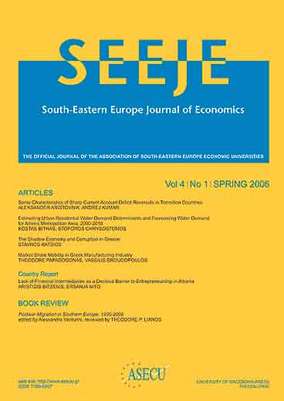The social sector and trans-regional collaboration among social sector institutions in Balkan countries in transition - a case study of healthcare institutions in Albania
Part of : SEEJE ; Vol.3, No.2, 2005, pages 249-271
Issue:
Pages:
249-271
Author:
Abstract:
This article examines the situation, problems and priorities of trans-regional cooperation among public institutions in Balkan countries in transition and more specifically the health sector in Albania. Since 1989 a dominant anti-state tendency has been adopted in the Balkan countries in transition, which in turn has led to a decline in the state and public sector of the economy. The main features of the healthcare systems in Balkan countries are privatization, decentralization, a decrease in public expenditure and, in general, the introduction of market elements in the health sector. The collapse of economies, the increase in poverty and social and income polarization have led to a dramatic deterioration in healthcare systems since 1989. Before 1989, Albanian public health sector employees were rarely satisfiedwiththe situation in this sector; however, they are comparatively more satisfied with the current situation and quite optimistic about the future. The greatest obstacles to the modernization of the system are the lack of resources, bureaucracy, corruption and the institutional framework. To confront these particular problems, transregional collaboration has been sought with corresponding institutions mainly of EU member countries and in particular neighbouring Balkan countries. This is due mainly to the strategic aim of Albania to become integrated into the EU as well as to benefit from the better level of EU member countries’ healthcare systems.
Subject:
Subject (LC):
Keywords:
Balkans, transition, social sector, healthcare
Notes:
Περιέχει πίνακες και βιβλιογραφία, JEL Classification: I18




